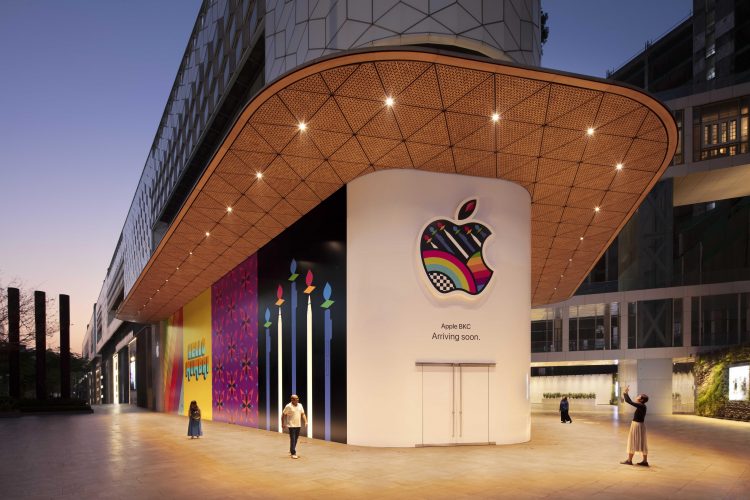
In today's ever-changing science and technology, Apple's every move affects the nerves of science and technology enthusiasts around the world. Recently, Apple announced that in its latest software update, the integration of OpenAI's ChatGPT feature powered by the GPT-4o model, the news quickly sparked widespread discussion in the tech community. The update, which covers the three major platforms of iPhone, iPad and Mac, marks an important step for Apple in the field of artificial intelligence.
First of all, we need to be clear that Apple's Siri-ChatGPT integration is undoubtedly an important upgrade to its existing intelligent assistant Siri. With the introduction of ChatGPT, Siri will be able to handle more complex and changeable questions to improve the user experience. However, behind this upgrade, it exposes some of Apple's limitations in the field of artificial intelligence.
ChatGPT as an AI model based on natural language processing technology, its core advantage is the ability to understand and generate human language to have a smooth conversation with the user. However, the implementation of this technology relies on a large amount of data and computing resources. Apple chose to cooperate with OpenAI, no doubt in order to use its powerful model and data processing power to make up for its own shortcomings in AI technology. However, this partnership model also brings new questions: Will Apple be able to ensure ChatGPT's stable operation on its platform? How to protect users' data privacy?
Based on the available information, it appears that Apple is already working to address these issues. For example, they announced that they would take privacy measures to prevent OpenAI from storing user requests. However, whether this commitment will actually be implemented remains an open question. After all, tech giants often have complex interests and elusive motives when it comes to data privacy. So there's reason to be cautious about Apple's move.
In addition, Apple's Siri-ChatGPT integration feature has also involved some technical challenges. For example, how do you ensure compatibility and performance of ChatGPT on different devices? How to avoid the problem of equipment heating and power consumption caused by too large model? These issues require continuous optimization and improvement by Apple in subsequent software updates.
In addition to the technical challenges, Apple's move has also sparked a discussion about the ethics and responsibility of AI. As an intelligent model, ChatGPT's output is often influenced by training data and algorithm design. Therefore, in the course of using ChatGPT, users may encounter information that is inaccurate, biased, and even harmful. How to ensure that ChatGPT's output complies with social ethical and legal requirements? How will the mistakes and misconduct of ChatGPT be held accountable? These are issues that Apple needs to seriously consider and solve.
From a broader perspective, Apple's launch of Siri-ChatGPT integration also reflects a current trend in the field of artificial intelligence: that is, through cooperation and integration to improve the overall level of AI technology and application capabilities. However, this trend also brings some potential risks and challenges. For example, there may be differences in technical standards and data formats between different vendors, which can lead to the compatibility and interoperability of AI models on different platforms. In addition, as AI technology continues to develop and spread, how to ensure the fairness and explainability of the technology? How to avoid social problems and ethical dilemmas caused by the misuse of technology? These problems need to be solved by the joint efforts of the scientific and technological circles and the society.
Back to Apple's move itself, we can also analyze from the perspective of market competition. As the smartphone and tablet market becomes increasingly saturated, Apple needs to attract and retain users through continuous innovation and upgrades. The integration of ChatGPT is undoubtedly an important attempt by Apple in this area. However, will this attempt really impress users? Are users willing to pay more for this feature? These problems need to be verified by market feedback.
In addition, Apple's move also triggered thinking about its future strategic direction. With the continuous development of AI technology and the continuous expansion of application fields, will Apple further increase investment and research and development efforts in the field of AI? Will more AI-based products and services be launched? All these issues deserve our close attention.
To sum up, Apple's launch of a software version that integrates ChatGPT is undoubtedly a significant attempt. However, from the perspective of technology criticism, there are many problems and challenges that are worth pondering behind this initiative. We need to view this change in an objective and rational manner, and continue to pay attention to its subsequent development and impact. Only in this way can we enjoy the convenience and fun brought by science and technology while avoiding technological pitfalls and ethical dilemmas.

In December 2025, the US banking industry was once again shrouded in the shadow of risks.
In December 2025, the US banking industry was once again sh…
In December 2025, US President Trump signed an executive or…
Recently, the barometer of the US economy has shown unstabl…
Recently, the dispute over the digital services tax between…
Recently, the International Monetary Fund (IMF) and the Org…
A clear consensus has emerged in Europe's economic sphere: …